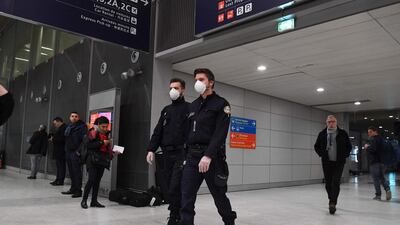After overcoming regional geopolitical risks at the start of the year and receiving a shot in the arm from a US-China trade deal, markets were beginning to get back to normal in the middle of the month. Then a new threat emerged, this time transmitted through the air.
The coronavirus reminds markets of other previous health shocks emanating from emerging market countries, such as SARS (severe acute respiratory syndrome) in 2003 and Ebola in 2014 as well as Avian flu, Swine flu, MERS (Middle East respiratory syndrome) and Zika. These have not usually had long lasting impacts, but they show us it is not just risks we are aware of that can matter to markets; some threats can seemingly come out of nowhere and generate tremendous amounts of uncertainty.
Fears of an escalating coronavirus outbreak, which originated in China around the turn of the year, grew over the past week as a number of cases were confirmed in other parts of the world including in Europe and the US. The SARS epidemic, which affected China and other parts of Asia in the early 2000s, is the most obvious comparison, given its similarity and source. The scale of the response that is now under way is also a reflection of the seriousness it is being taken, both in China and around the world.
Over the past week, the Chinese government has implemented travel restrictions in the city of Wuhan, the source of the outbreak, and other countries have also implemented emergency measures to identify and hospitalise likely carriers. At the time of writing, the World Health Organisation determined the virus is not yet a global pandemic, but noted “it may yet become one.”
In addition to its effect on countries and populations, the coronavirus has also harmed financial markets, particularly in China and other financial centres across Asia. The Shanghai Composite equity index sold off about 4 per cent last week, while the Hong Kong Hang Seng equity index was down close to 3.5 per cent. The Chinese renminbi also moved lower, selling off roughly 1 per cent over the same period, while other emerging Asian currencies have also weakened as investor sentiment towards the region has been adversely affected.
Asset prices within Asia are likely to remain under pressure in the short term while the severity of the outbreak remains unclear. There may also be some effect on China’s economy as last week marked the beginning of the Chinese New Year, a very busy time for travel and retail spending in the country and among Chinese populations in other parts of the world.
Given the travel restrictions and other steps taken to avoid contagion, economic activity in China is likely to decelerate in the first quarter of 2020, reinforcing the weakening trend already under way. However, looking further ahead, it is doubtful if the coronavirus outbreak will have any meaningful or longer-lasting effect on China’s economy or any major impact on the economic health of other Asian countries, and even less so on the rest of the world.
After all, the economic effects of the SARS outbreak, which was more serious and more of a surprise, were fairly limited and contained and did not last long. Gross domestic supply growth slowed sharply in the second quarter of 2003 in a few Asian economies, but not elsewhere. And even in Asia, growth quickly recovered. China may be a much more important part of the global economy now than it was in 2003 but the reaction this time is already much quicker and transparent, so the impact of the virus is likely to be smaller overall.
Chinese markets will remain closed until Friday for the Lunar New Year, when we will see the release of the official purchasing manager indices for the month. While the full effect of the coronavirus outbreak on confidence might not yet be revealed, there may be some early signs of it. While it is clear the outbreak will hurt China's economy in the first quarter to some degree, it is the uncertainty about the virus that probably contains the greatest risk to financial markets. The coming week will likely tell us if that uncertainty has passed its peak.
Tim Fox is chief economist and head of research at Emirates NBD


